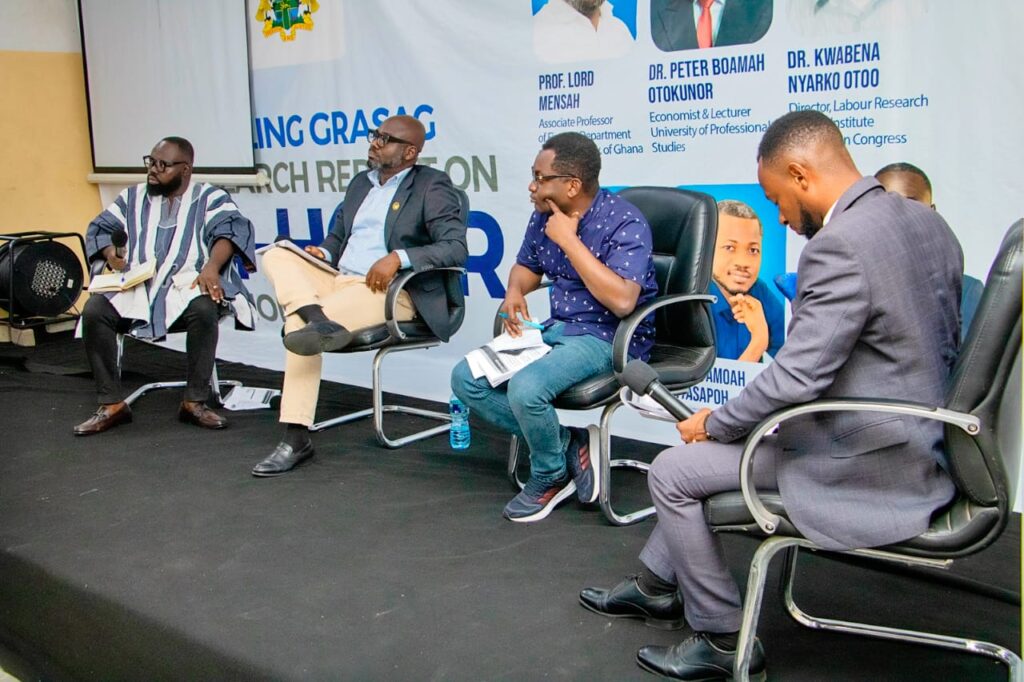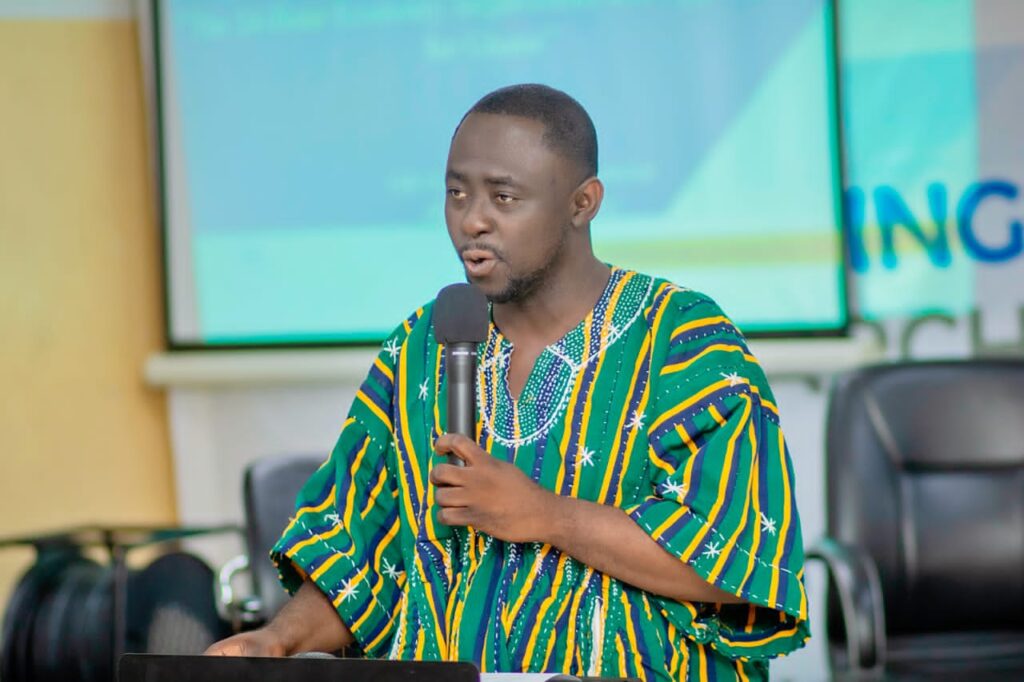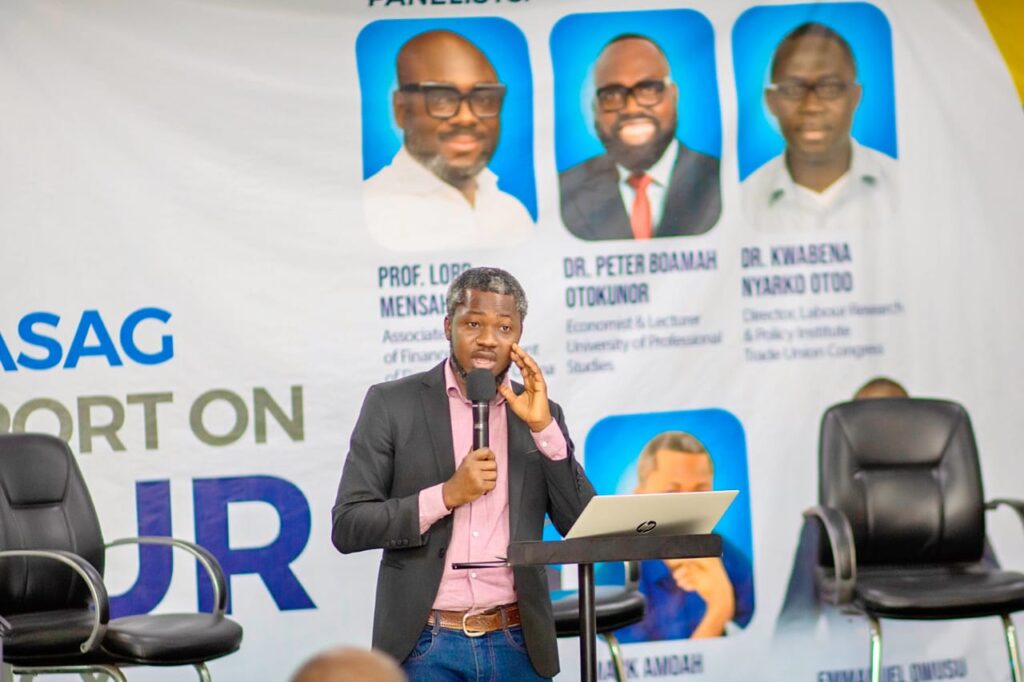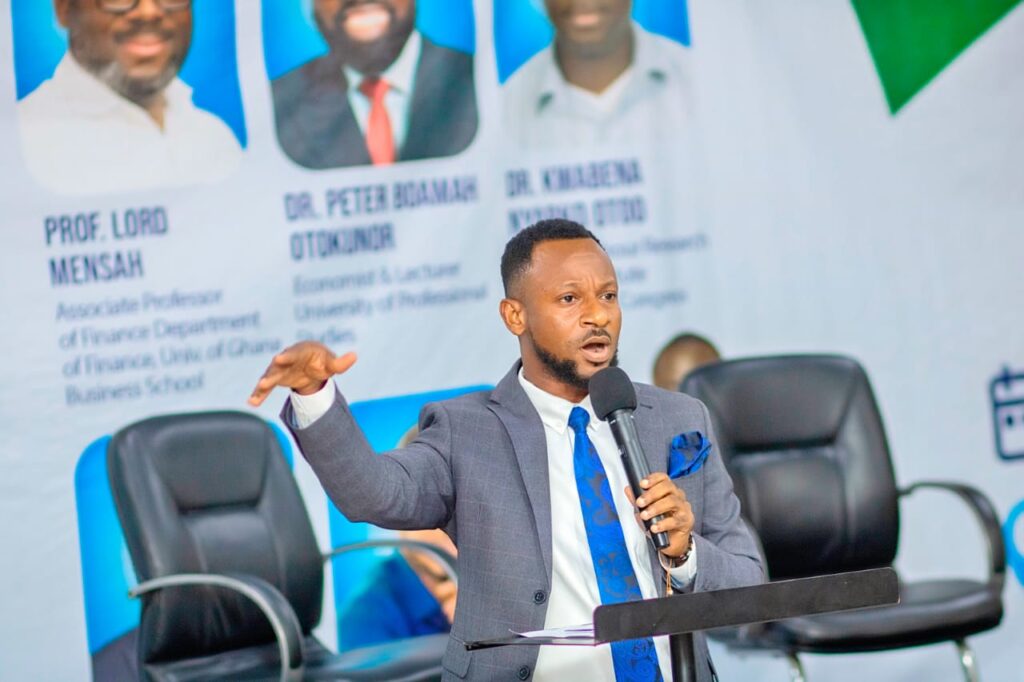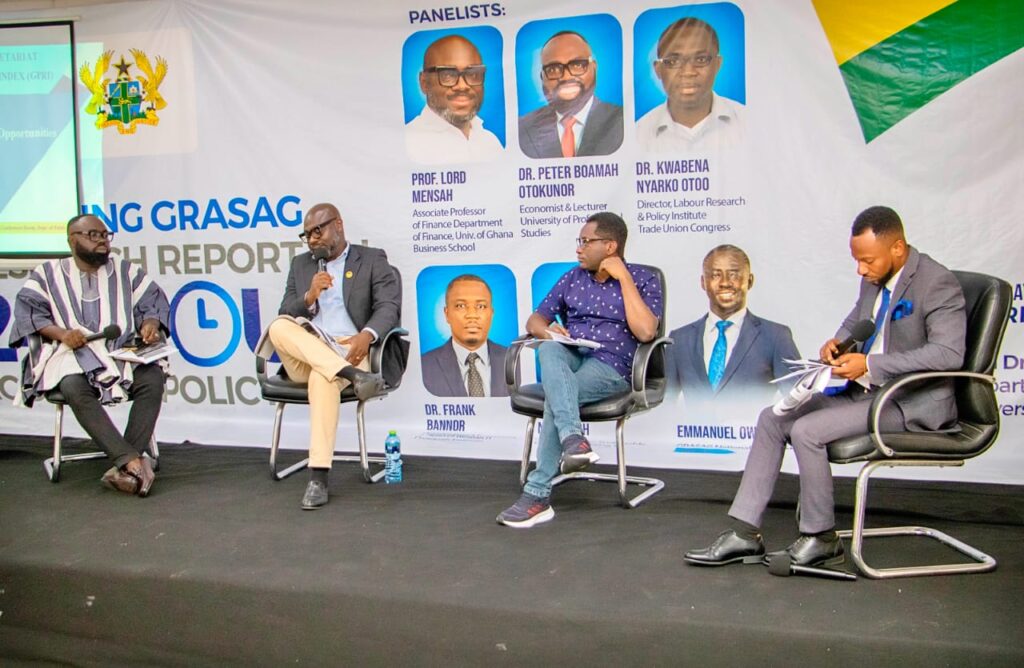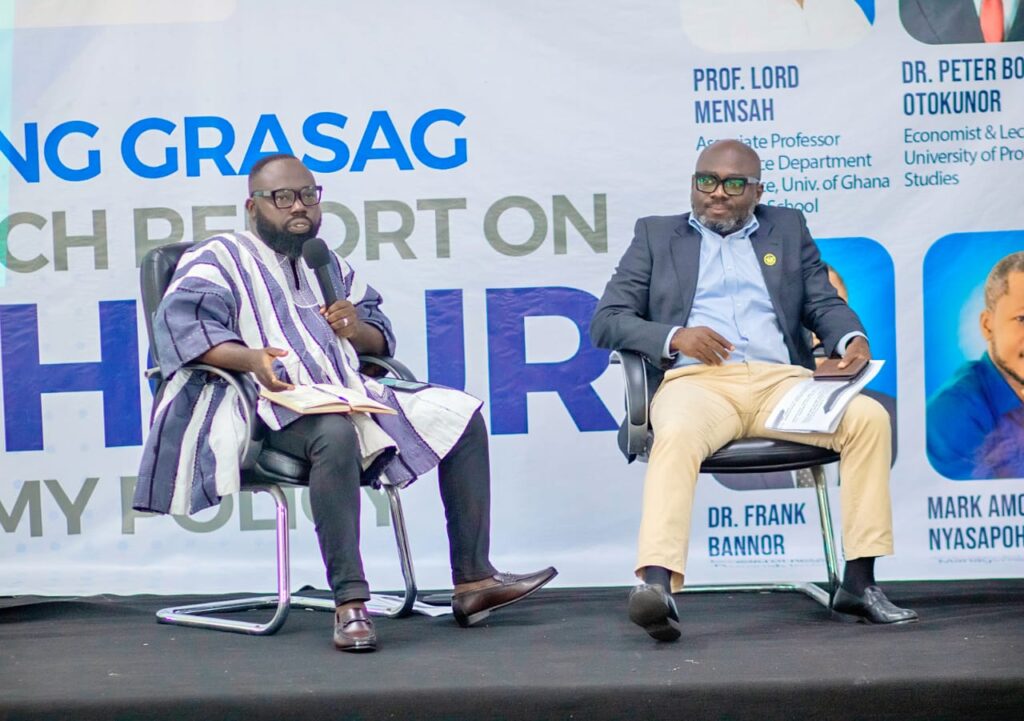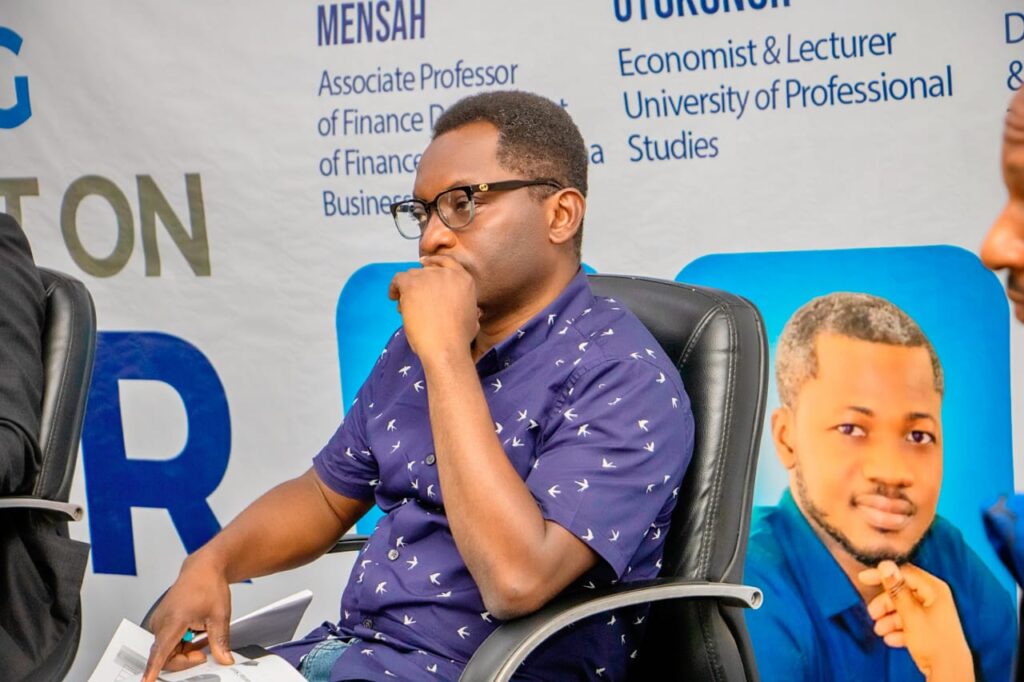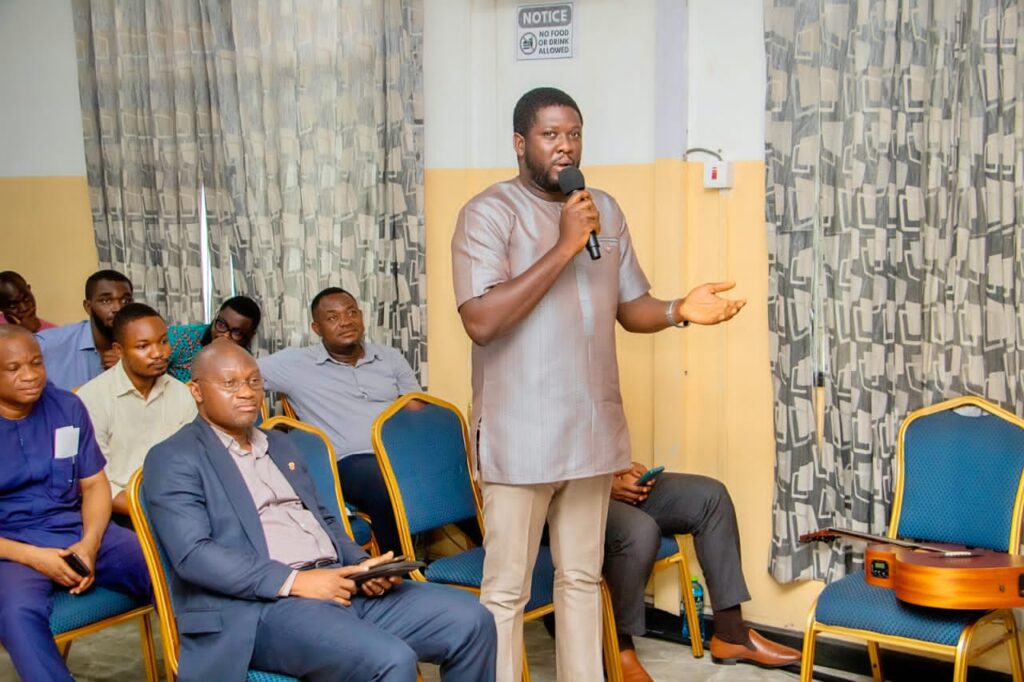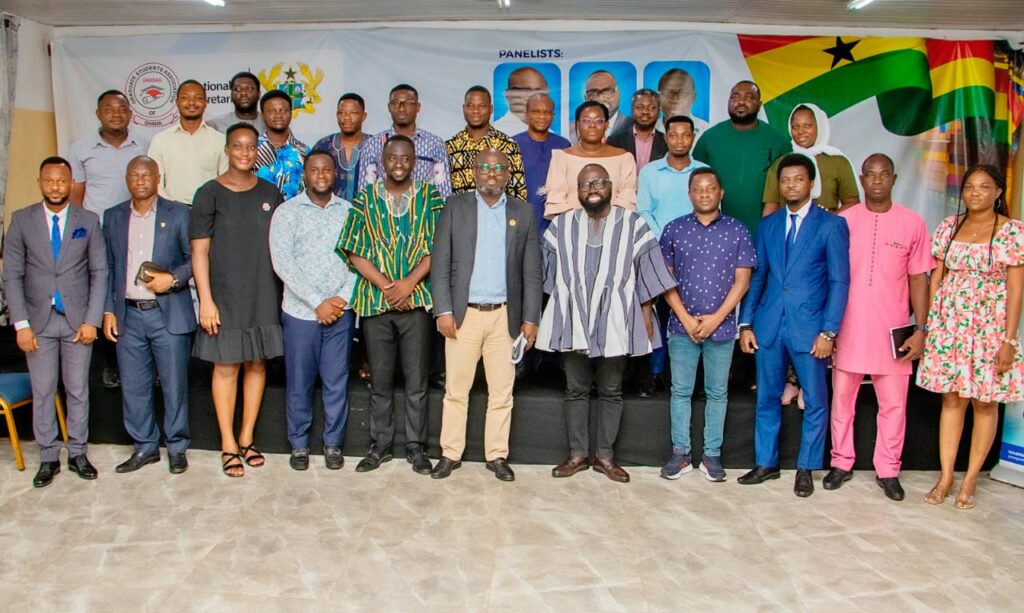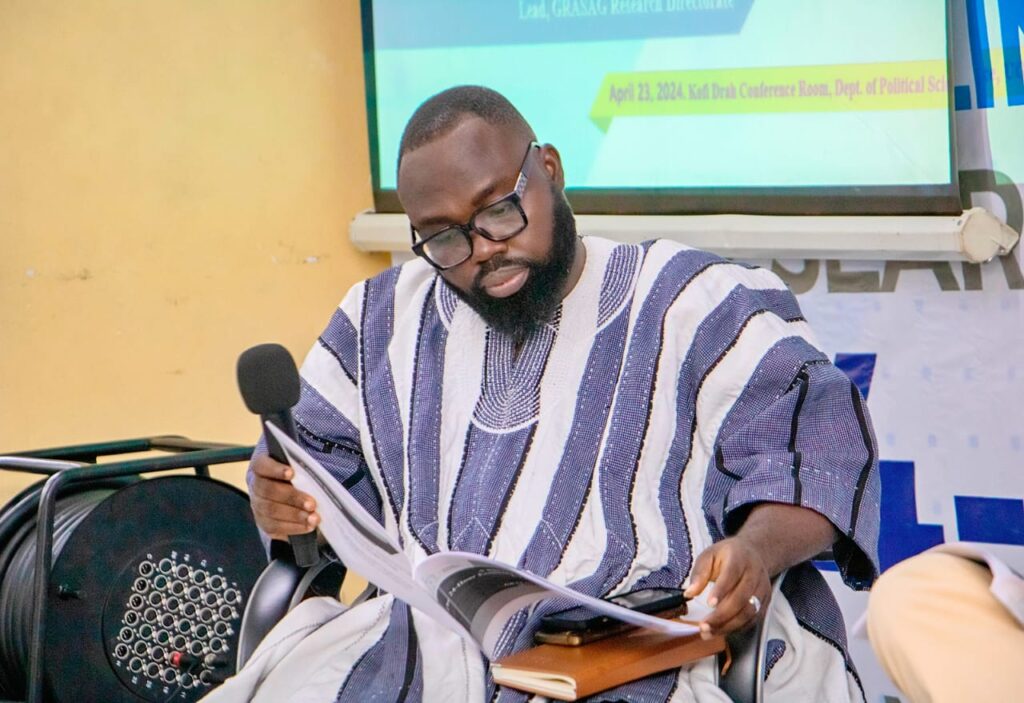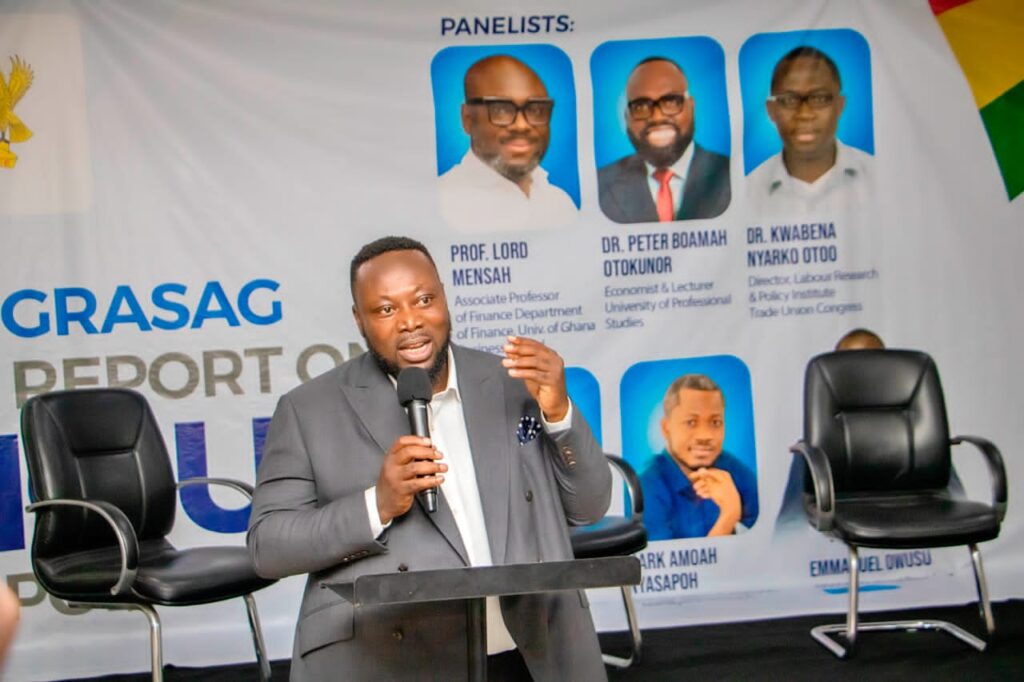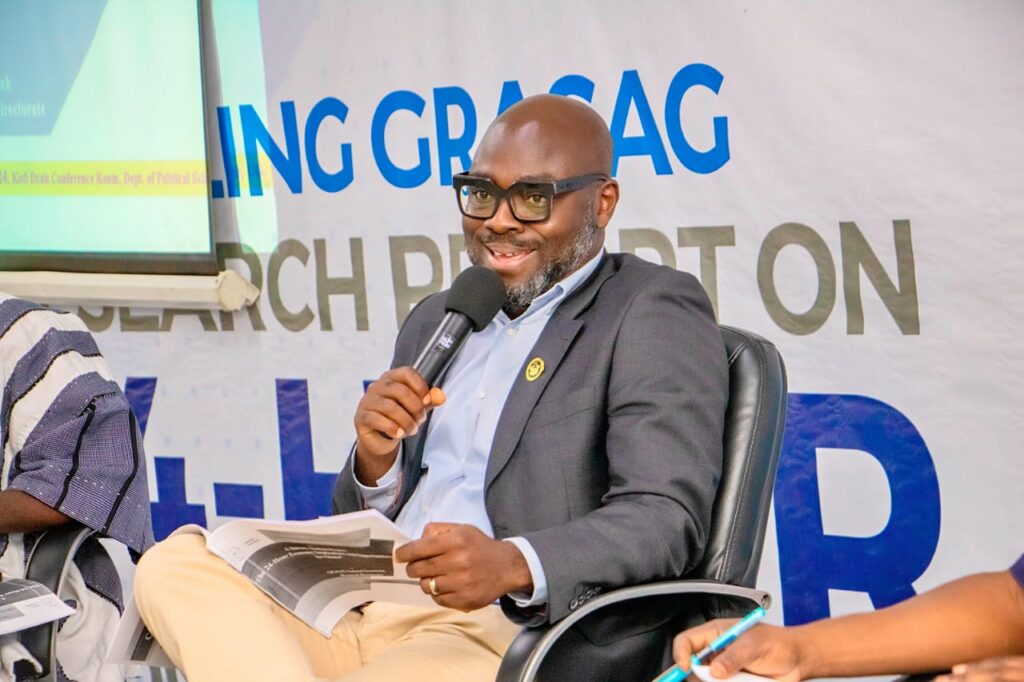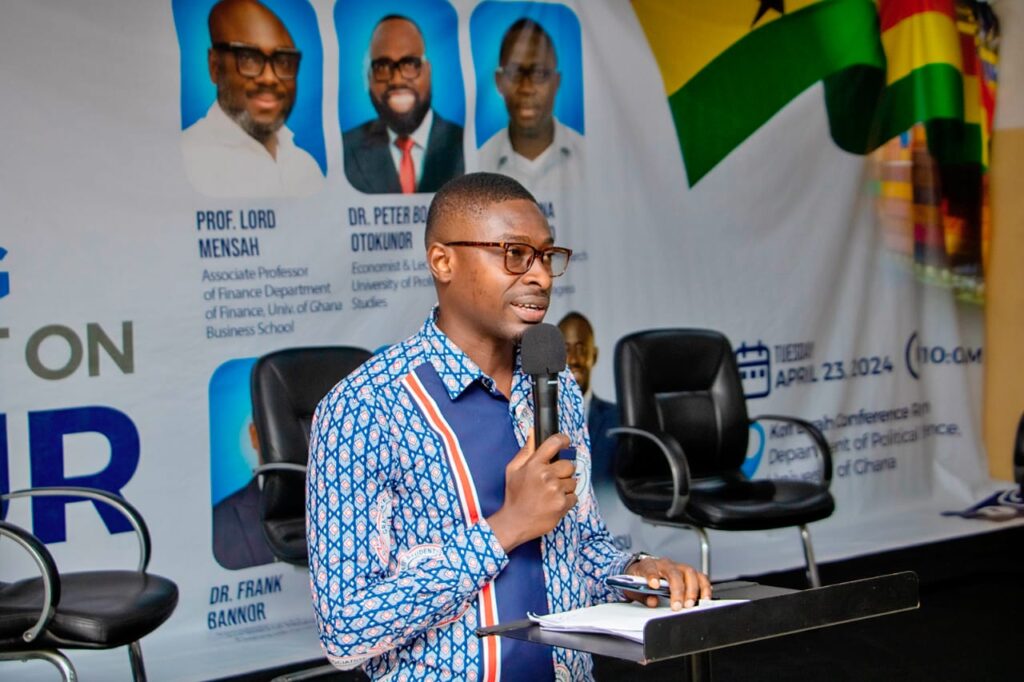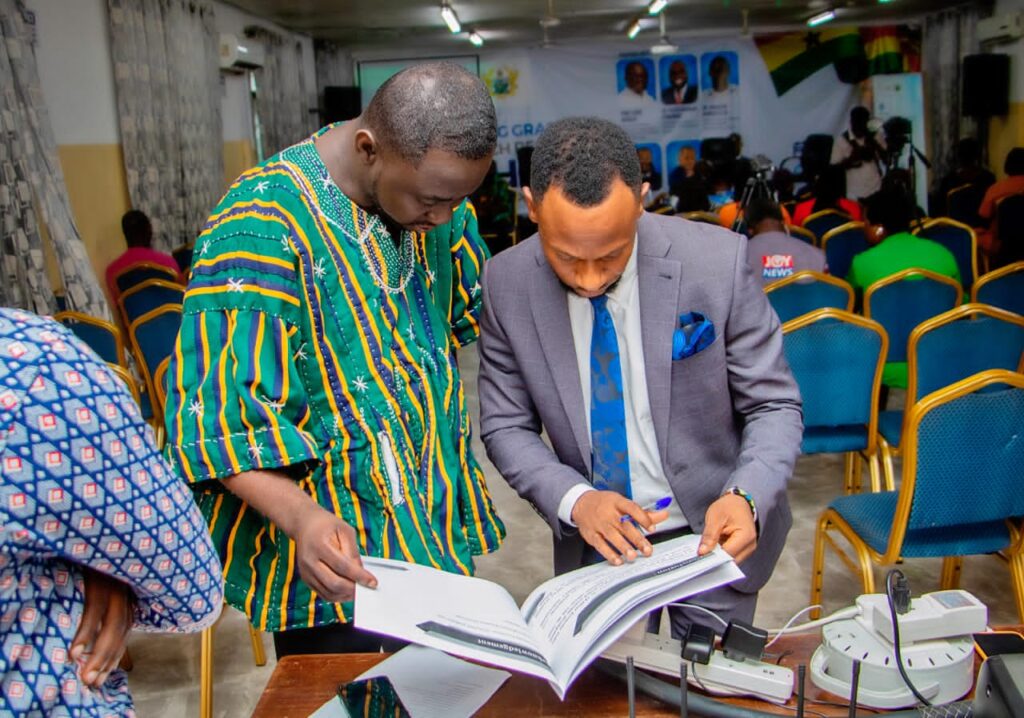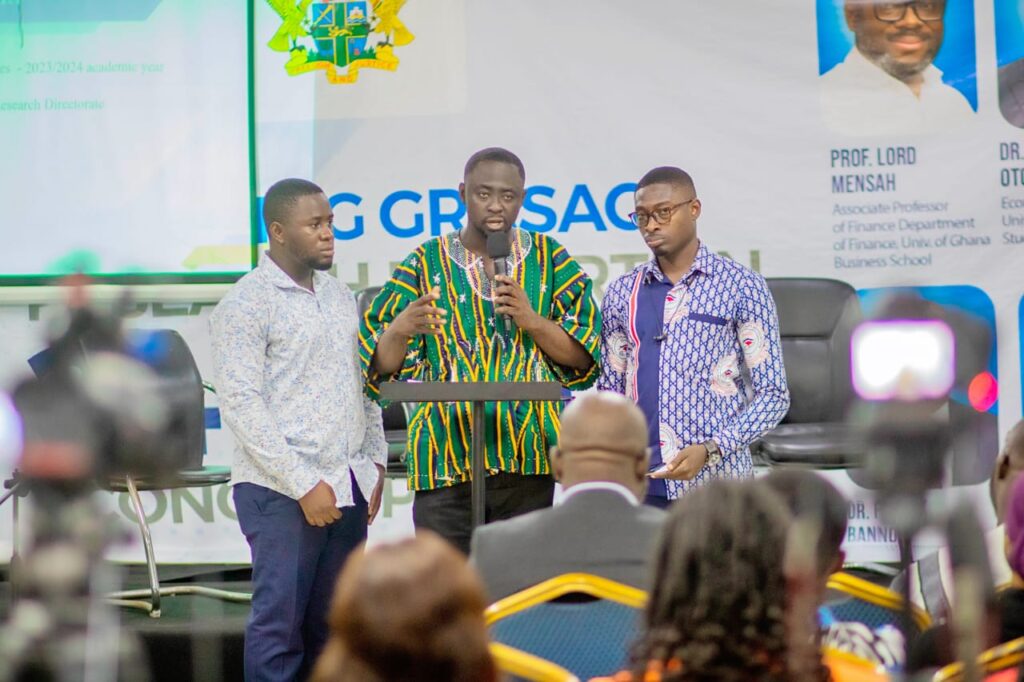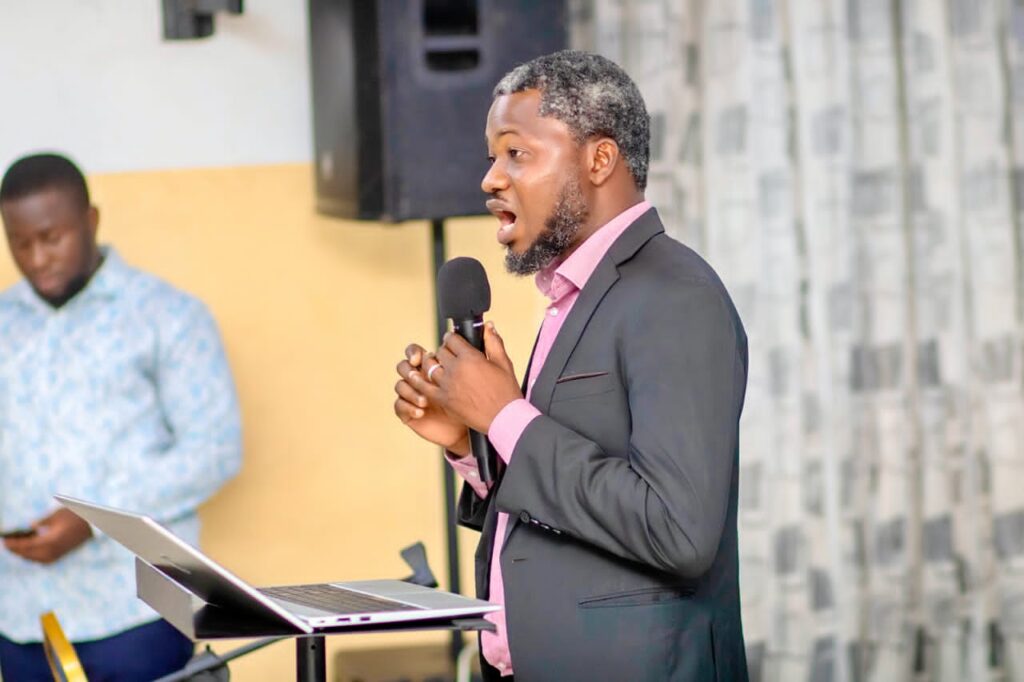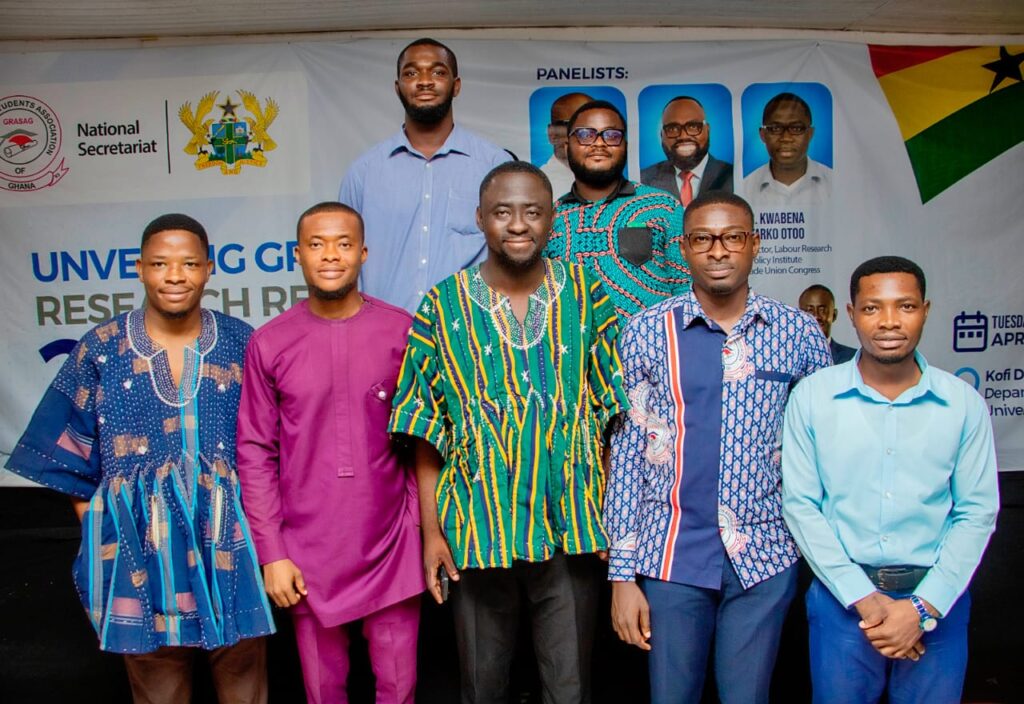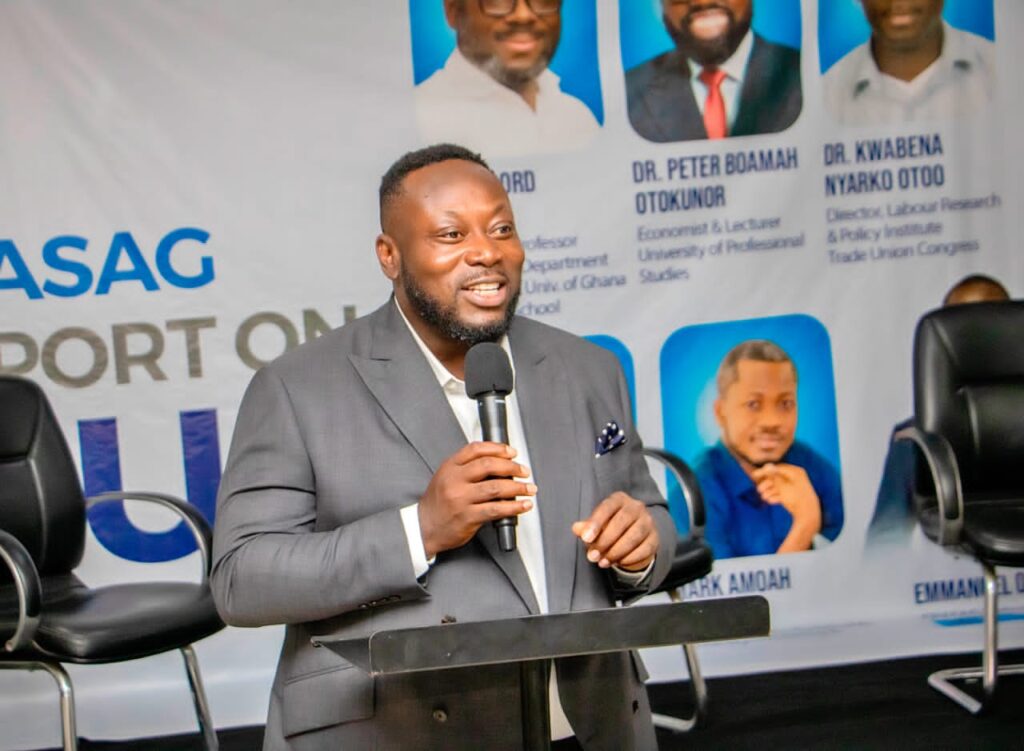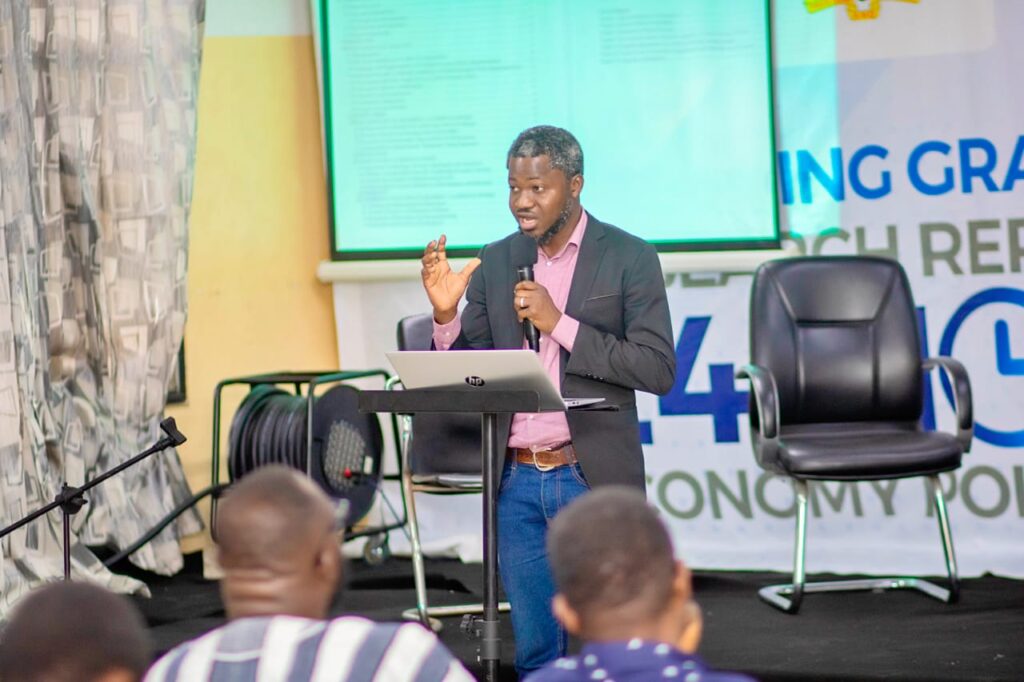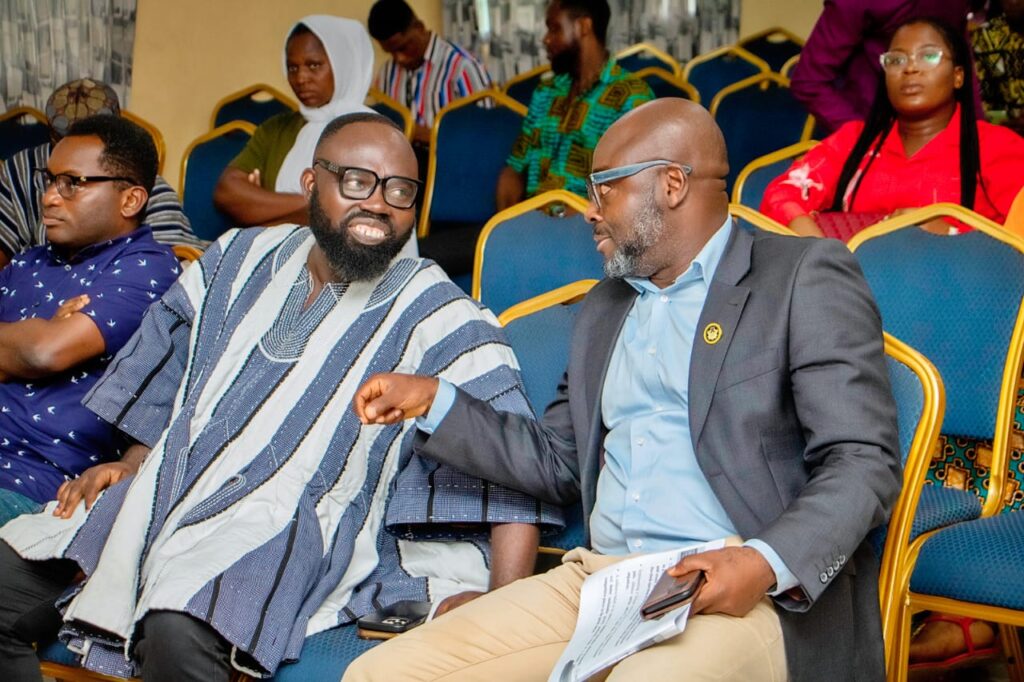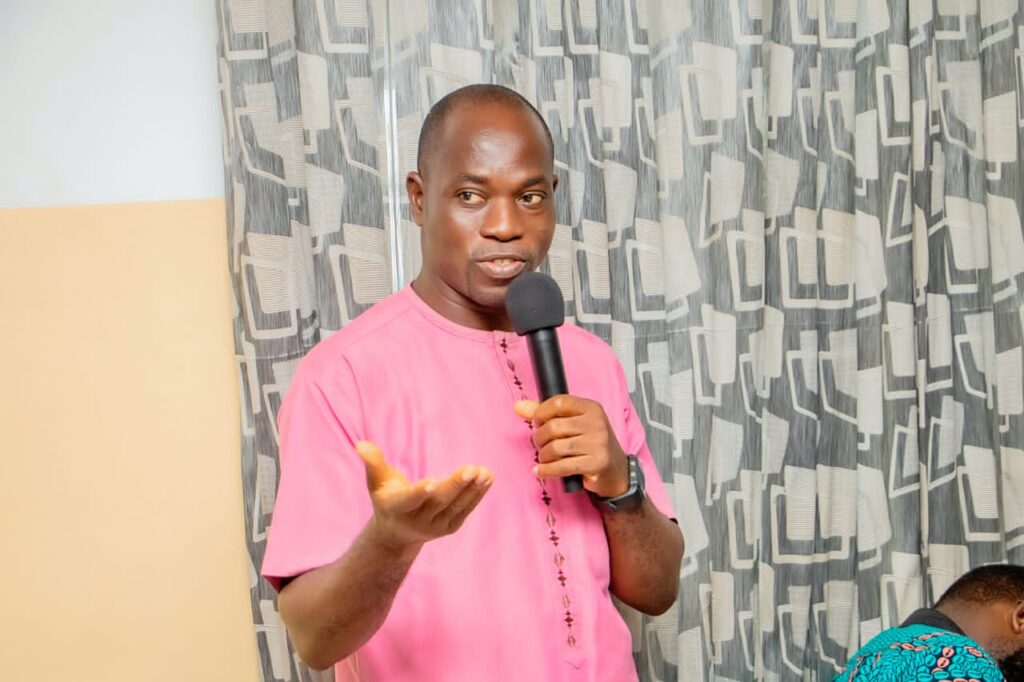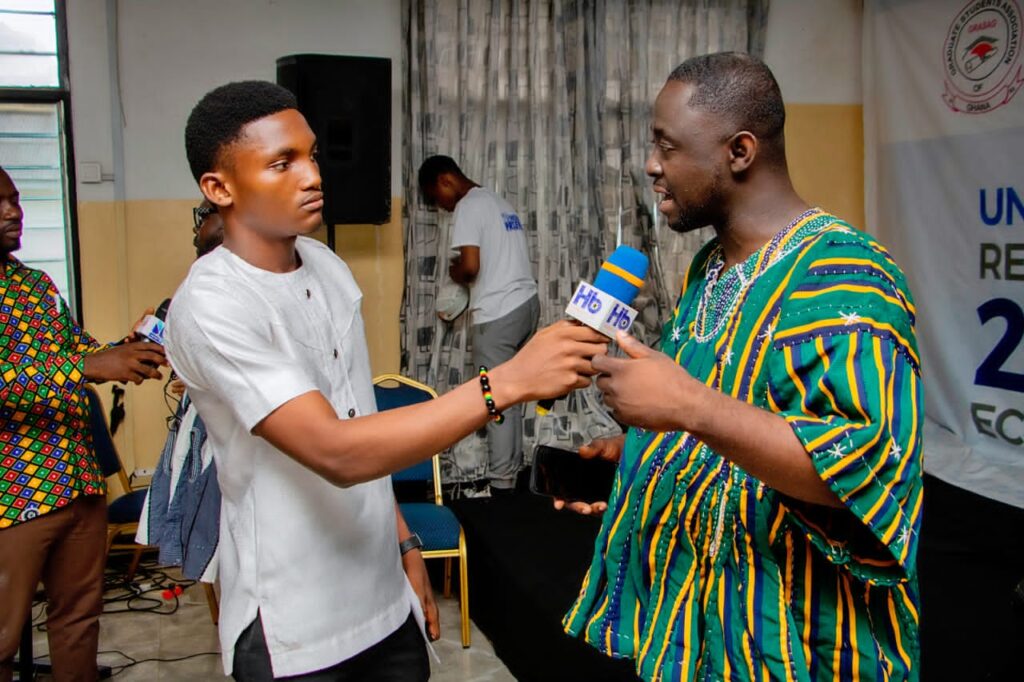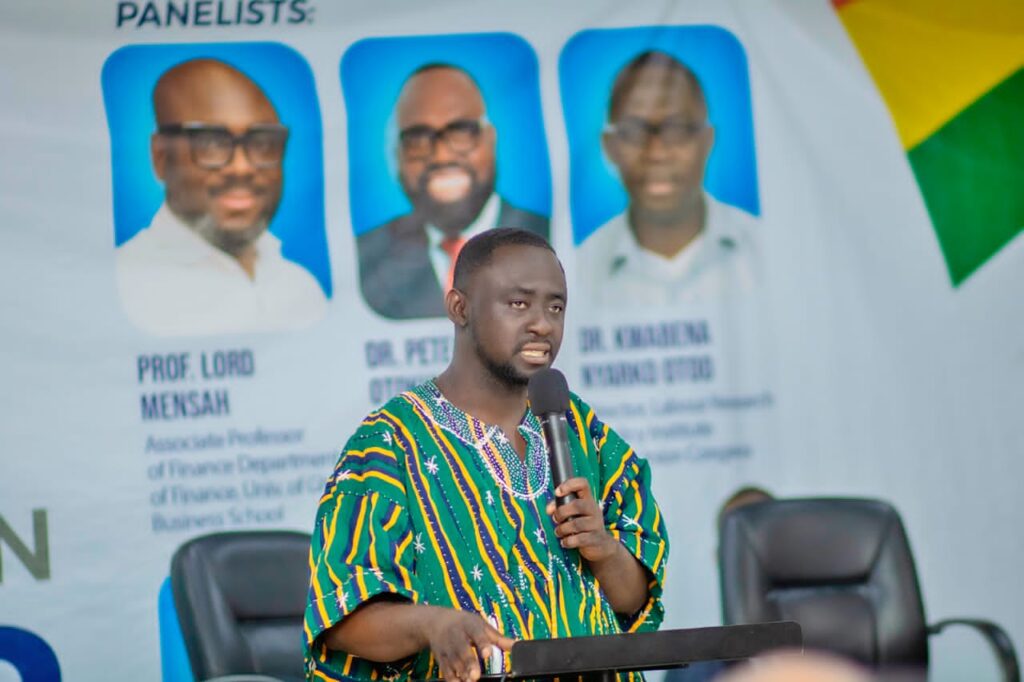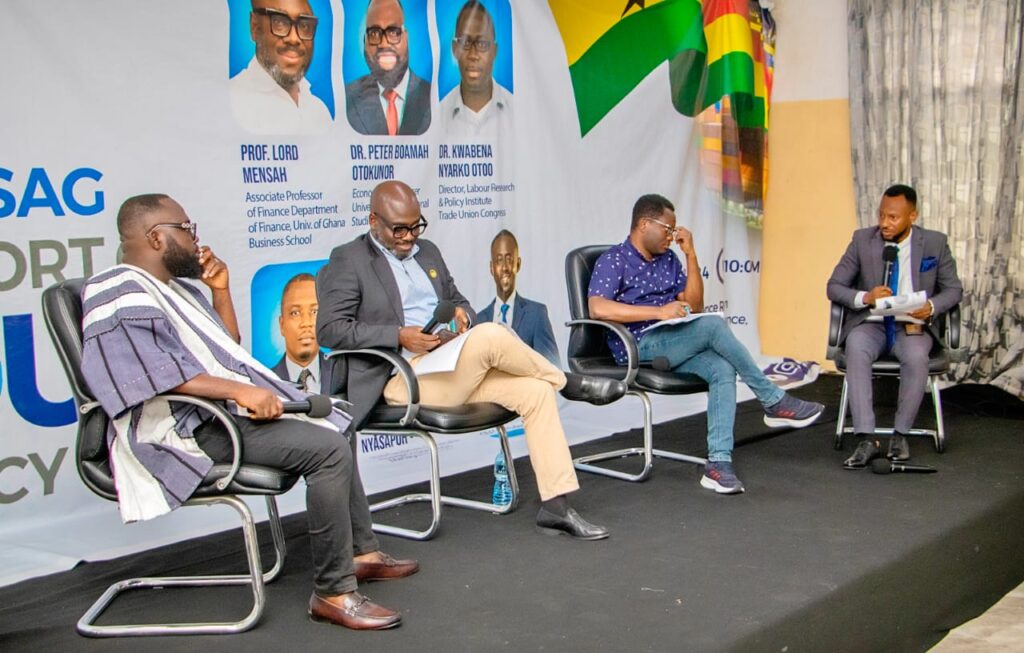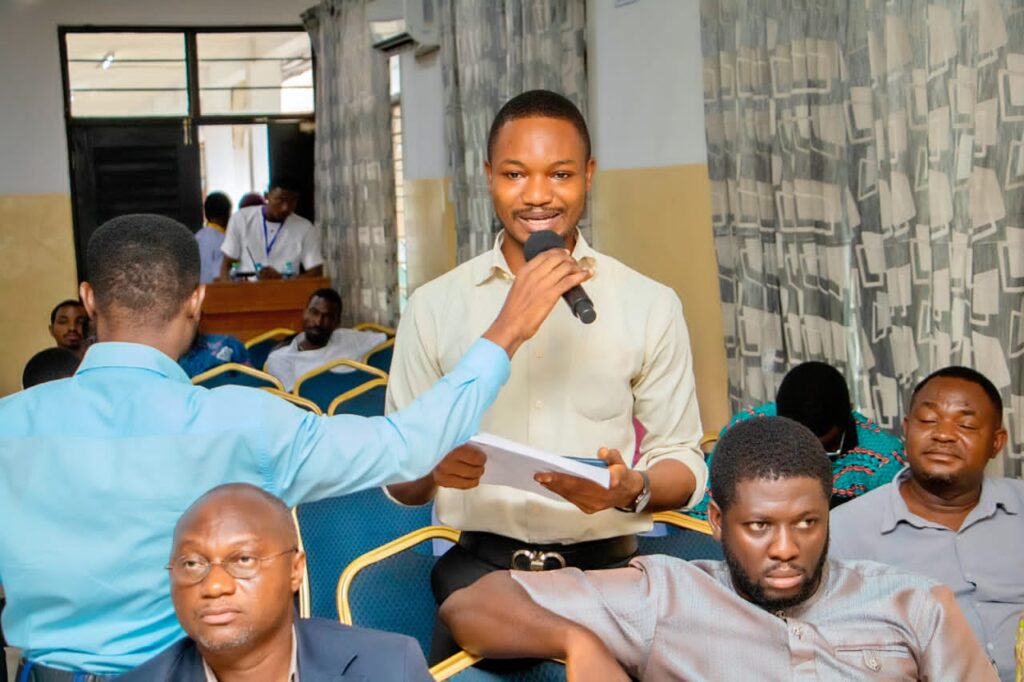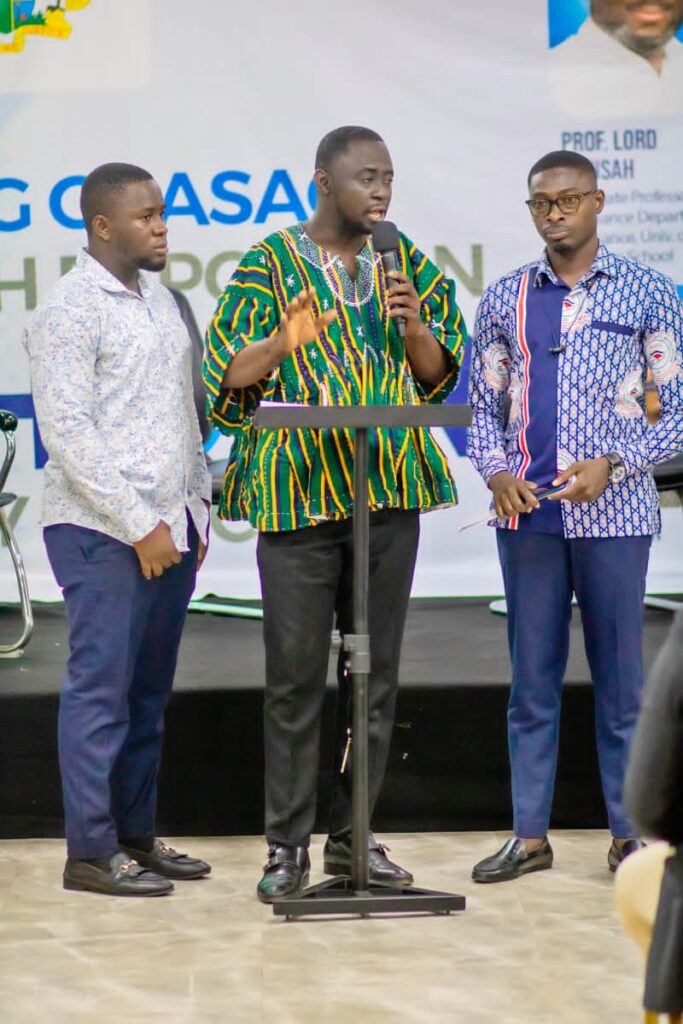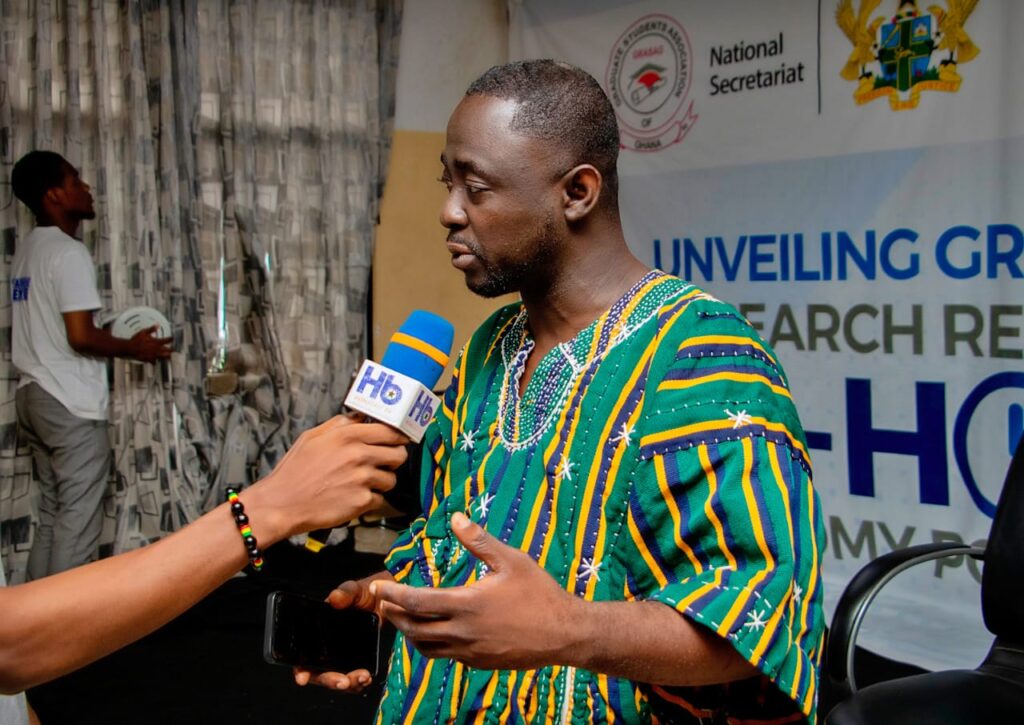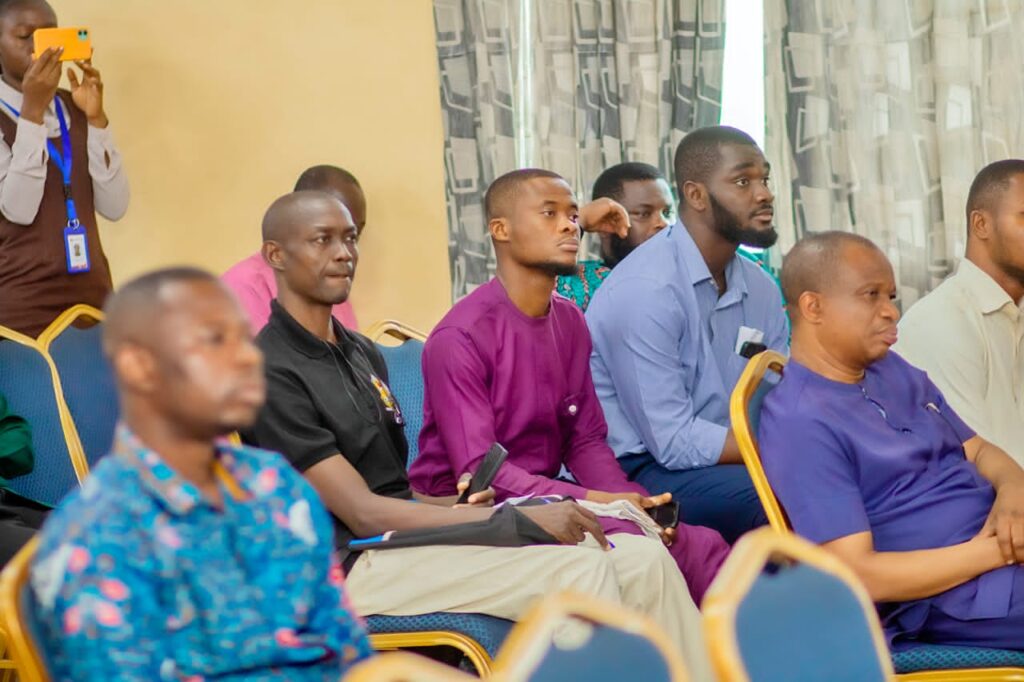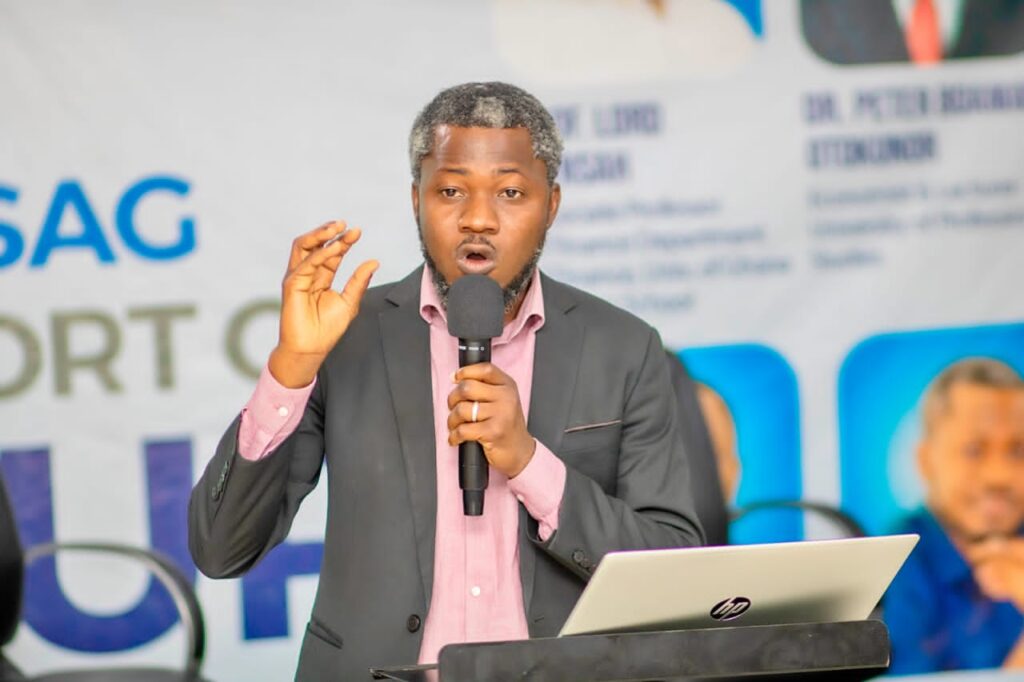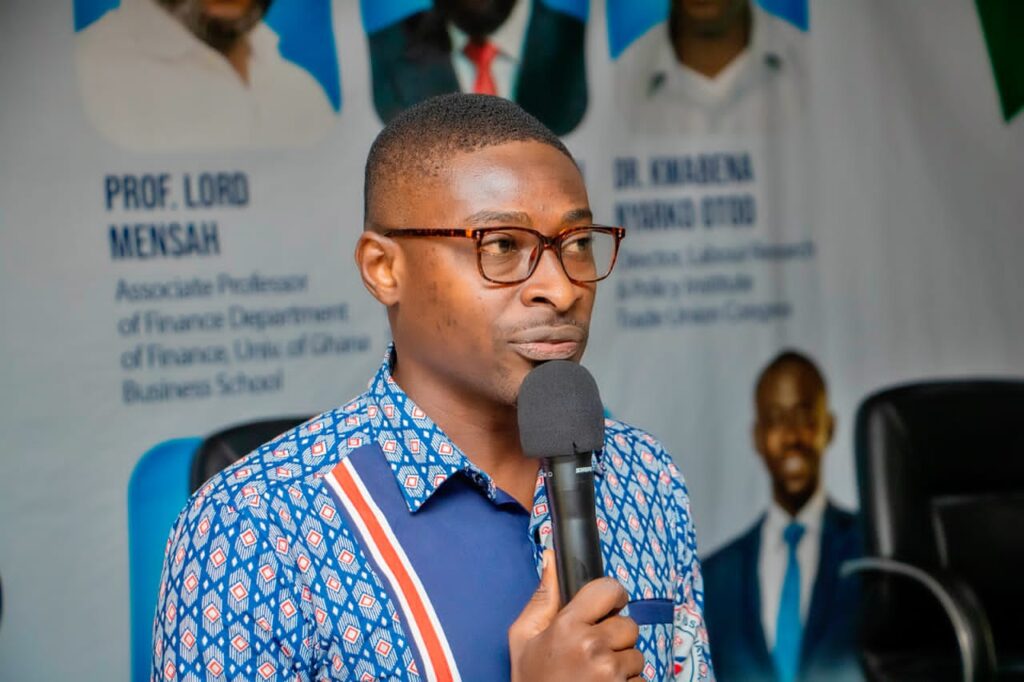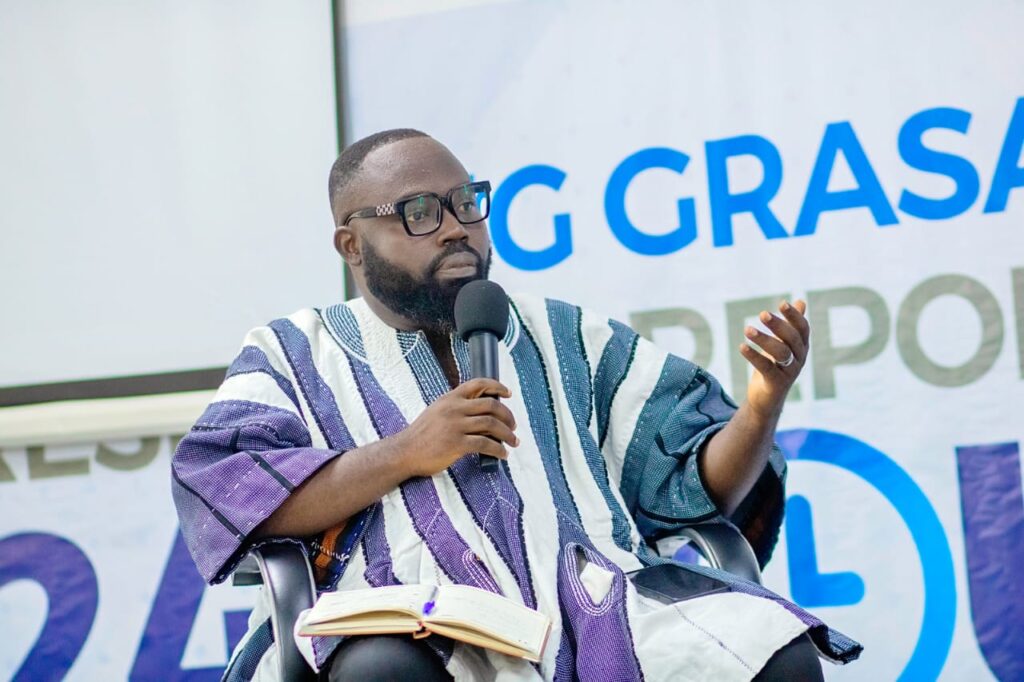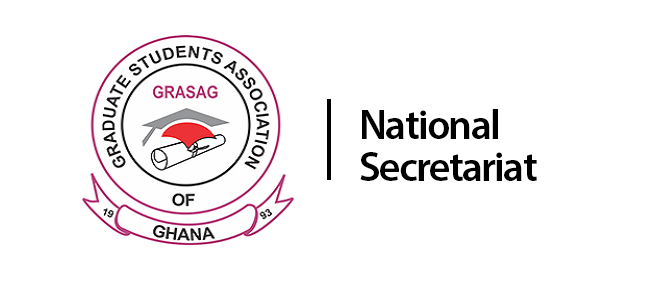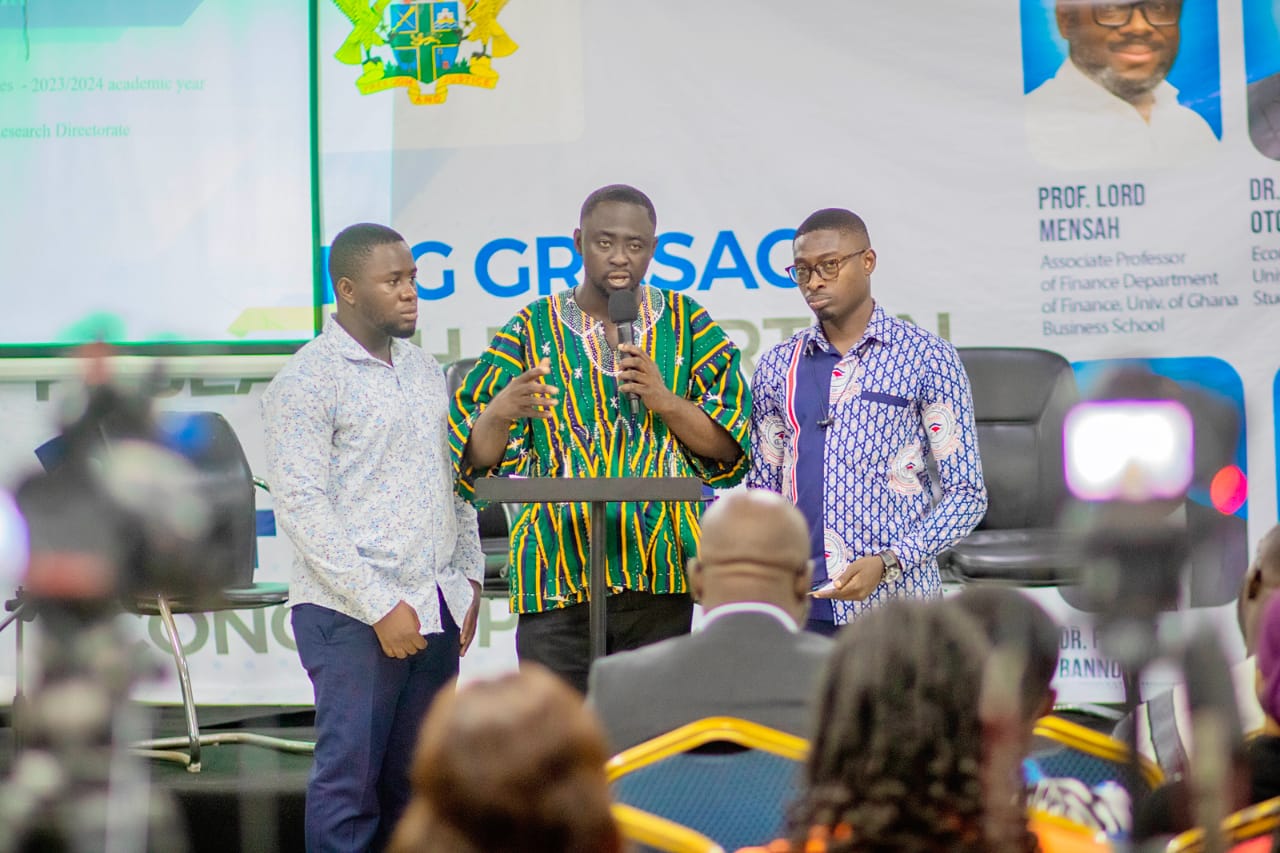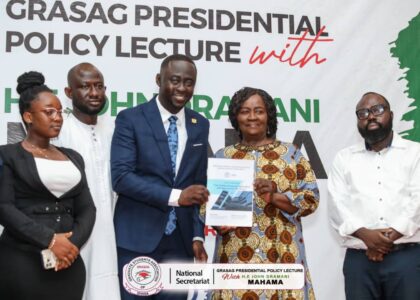The Graduate Students Association of Ghana (GRASAG) has once again demonstrated its commitment to national development by unveiling a comprehensive research report on the proposed 24-hour economy policy.
This report marks the inaugural publication of the GRASAG Policy Research Index (GPRI), a novel initiative aimed at systematically evaluating and influencing policy directions through rigorous research within the postgraduate student community. The report, which was presented at a ceremony held at the Kofi Drah Auditorium at the Political Science Department, University of Ghana on April 23, 2024 provides an in-depth analysis of the potential impact of a 24-hour economy in Ghana.
The research which was conducted by a Research Directorate of GRASAG explores the feasibility, benefits, and challenges of implementing a 24-hour economy policy. The findings indicate that such a policy could significantly boost economic activity, create jobs, and enhance the entrepreneurial ecosystem in the country.
The 24-hour economy policy is an ambitious initiative aimed at transforming Ghana’s economic landscape by promoting around-the-clock business operations. This policy is designed to enhance productivity, create jobs, and stimulate economic growth by leveraging the untapped potential of nighttime economic activities. GRASAG’s research delves into the feasibility, benefits, and challenges of implementing such a policy in Ghana.
The research report, which involved extensive data collection and analysis, presents several key findings:
1. Economic Benefits: The report highlights the potential economic benefits of a 24-hour economy, including increased GDP, job creation, and enhanced competitiveness. By extending business hours, Ghana can attract more investment, boost tourism, and capitalize on the global demand for goods and services.
2. Infrastructure and Security: Successful implementation of a 24-hour economy requires significant investment in infrastructure and security. The report emphasizes the need for improved transportation networks, reliable energy supply, and robust security measures to ensure the safety of businesses and consumers during nighttime operations.
3. Social and Cultural Impact: The transition to a 24-hour economy will have profound social and cultural implications. The report examines potential shifts in work-life balance, changes in social behavior, and the impact on community life. It calls for comprehensive social policies to support workers and their families in adapting to new schedules.
Emmanuel Owusu, National President of GRASAG, has expressed optimism about the 24-hour economy plan proposed by John Dramani Mahama, flagbearer of the National Democratic Congress (NDC). Owusu believes this policy could substantially transform Ghana’s market landscape.
The initiative seeks to enable certain businesses and companies to operate longer hours particular non-conventional working hours, promoting productivity, competitiveness, and job creation. Mr. Owusu shared his thoughts during the presentation of the GRASAG research report on “The 24-Hour Economy,” expressing hope that the report’s recommendations will be carefully considered if Mahama returns to office.
Emmanuel emphasized that the 24-hour economy will greatly influence information technology and internet access, both essential components of the digital world. “For prospects, it will also have some impact on information technology and now we are in a digital age and most of the things we do are driven by information technology and of course, once you are implementing a 24-hour economy, it will require that you improve internet access. We already have a strong fiber; we may want to look at bettering our internet service. Recently when there was an internet crisis, we were really in deep waters. We are saying that if we want to implement a 24-hour economy, we will have definitely work on ensuring the country has quality internet service and at all time.”
He believes that implementing the 24-hour economy will boost productivity, generate jobs, improve service delivery, align with Ghana’s socio-economic goals, drive innovation, attract foreign direct investment, and promote sustainable growth, thereby positioning Ghana as a global competitor.
Furthermore, he said there was the need to implement policies and incentives to attract investment in key sectors such as health care, manufacturing and technology and create funded entrepreneurship programmes to support and encourage innovation for enterprise development.
“Investments in education and skills development to equip workforce with the necessary competencies. Vocational training programmes and partnerships with industry stakeholders can facilitate workforce readiness and employability,” the research added.
Following the presentation of the research findings, a panel discussion was held to explore the practical implications of the 24-hour economy policy. Panelists included representatives from the Ministry of Trade and Industry, the Ghana Employers’ Association, labor unions, and academic institutions. The discussion provided valuable insights into the opportunities and challenges of implementing the policy and highlighted the need for a phased and strategic approach.
Based on the research findings, GRASAG made several recommendations for the successful implementation of the 24-hour economy policy:
1. Pilot system: The report suggests initiating pilot system in selected sectors of the economy to assess the feasibility and impact of the 24-hour economy is very important in achieving this policy. This pilot model can provide valuable lessons and inform the scaling-up of the policy nationwide.
2. Public Awareness Campaigns: Raising public awareness about the benefits and challenges of a 24-hour economy is crucial. GRASAG recommends launching comprehensive awareness campaigns to educate businesses, workers, and consumers about the policy.
3. Regulatory Framework: Developing a robust regulatory framework is essential to ensure the smooth functioning of a 24-hour economy. The report calls for clear guidelines on labor rights, business operations, and safety standards.
4. 24-Hour Economy Secretariat: Establishing a dedicated 24-hour economy secretariat is crucial for coordinating and overseeing the implementation of the policy. This body would be responsible for ensuring all stakeholders are aligned, monitoring progress, and addressing any issues that arise during the rollout.
5. Infrastructure Development, Technology Access, and Security: Prioritizing infrastructure development, technology access, and security is essential for the success of a 24-hour economy. Improved transportation networks, reliable energy supply, robust internet services, and enhanced security measures are critical to ensuring the safe and efficient operation of businesses around the clock.
The unveiling event also featured panel discussions which feathered Prof. Lord Mensah, Associate Professor of Finance, Dr. Peter Boamah Otokunor, Economist & Lecturer and Dr. Prince Asafo Adjei Deputy Director, Labour Research & Policy Institute, Trade Union Congress who shared their perspectives on the 24-hour economy and its potential to transform Ghana’s economic landscape.
To tackle infrastructure limitations with the implementation of the policy, the research report recommended that there should be investments in road networks, power supply, and telecommunications infrastructure, supported by public-private partnerships (PPPs) to expedite development.
The unveiling of the research report on the 24-hour economy policy marks a significant step in GRASAG’s efforts to influence national policy and contribute to Ghana’s economic development. By providing evidence-based insights and practical recommendations, GRASAG aims to facilitate informed decision-making and foster a vibrant and inclusive economy.
As Mr. Owusu concluded, “Implementing a 24-hour economy will increase productivity, create jobs, and enhance service delivery. It aligns with Ghana’s socio-economic objectives. It will stimulate innovations, attract foreign direct investment, foster sustainable growth, and position Ghana as a global competitor. So, these are some of the views that our colleagues across the country have shared with us. We believe that the 24-hour economy is something that will transform the republic. We know that the former president has hinted, for us as GRASAG, it’s our prayer that when he gets the nod to become the president, he’ll consider some of these recommendations.”
GRASAG’s comprehensive research report on the 24-hour economy policy offers a roadmap for transforming Ghana’s economic landscape. The findings and recommendations underscore the potential benefits of the policy while highlighting the need for careful planning and stakeholder collaboration. As Ghana considers this bold initiative, GRASAG remains committed to supporting the nation’s development through rigorous research, advocacy, and engagement with key stakeholders.
